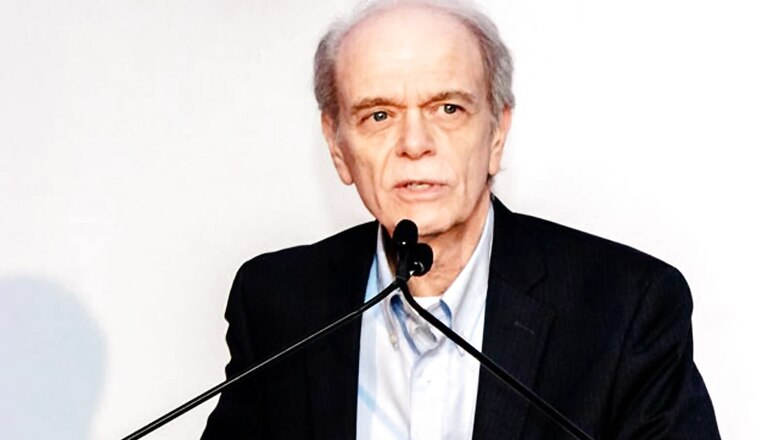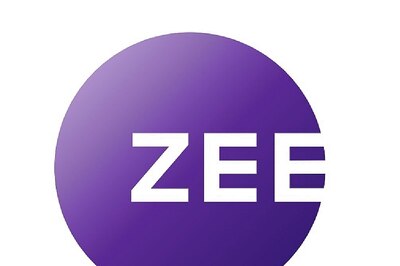
views
India’s aim to eliminate tuberculosis by 2025 is the most ambitious goal of any country in the world, the chief of an American non-profit alliance for TB drug development has told News18.com.
According to Mel Spigelman, president and chief executive officer of TB Alliance – a New York-based group that discovers and offers drugs to fight tuberculosis (TB) – “woefully inadequate funding and resources” are major impediments in fighting the disease.
In 2018, Prime Minister Narendra Modi announced a plan to eliminate tuberculosis in India by 2025 – five years ahead of the target set by the UN’s sustainable development goals.
“India has set perhaps the most ambitious goals of any country in the world in terms of TB elimination,” Spigelman told News18.com in an exclusive interaction. “However, no country is moving quickly enough to end TB and meet global goals.”
Spigelman, who also serves on the coordinating board of the WHO Stop TB Partnership, said that “the Covid-19 pandemic set back years of hard-won progress”.
He said that “none of the present goals would be met primarily because of unmet funding commitments that were made at the 2018 UN High-Level Meeting on TB”.
“There is time to course correct, but this will require truly meaningful global commitments to the fight against TB,” he added,
‘India, other countries not treating TB as an emergency’
Spigelman said that the situation in India highlights what is far and away the most important impediment to eradicating TB.
“That impediment is the woefully inadequate funding and resources that are being provided to the problem of tuberculosis. This is seen dramatically in terms of the lack of resources dedicated to the research and development of new tools – drugs, vaccines, and diagnostics and to the health care systems in charge of caring for TB patients,” he said.
Spigelman believes it’s not just India; many countries across the world are not treating TB as an emergency.
“It needs to be treated like the emergency it is,” he said, adding, “While TB has been a pandemic for centuries and it has only been made worse by the Covid-19 pandemic, unfortunately, it appears to be only a matter of time until TB again becomes the leading infectious disease killer in the world.”
India has the world’s highest TB burden with 2.6 million active cases and close to 4,50,000 deaths each year – which accounts for more than a quarter of the global disease burden. India also accounts for a quarter of the world’s drug-resistant TB.
“India has the world’s largest TB burden, and a relatively low success rate for the treatment of drug-resistant TB – under 60% of DR-TB patients who are treated are cured,” Spigelman pointed out.
‘BPaL an excellent tool to eradicate TB in India’
BPaL is a combination of three antibiotics – bedaquiline, pretomanid and linezolid – used to treat drug-resistant TB. It is a shorter regimen of six months compared to the usual 18-month treatment protocol. It is deemed useful in many ways, including cutting down on the pill burden significantly.
However, the Indian government hasn’t yet rolled out BPaL across the country due to side effects associated with high doses of linezolid.
Pretomanid and bedaquiline are novel drugs developed by TB Alliance and Johnson & Johnson, respectively, whereas linezolid is an old generic drug.
“Any regimen that is short, simple, and highly effective can be an excellent tool for national TB programmes to help patients in terms of efficacy, safety and cost efficiency,” Spigelman said. “Because of extremely limited funding for doing any work on TB, we could only study the BPaL regimen pre-approval in a limited number of countries, which did not include India.”
Commenting further on India’s slow adaptation of BPaL, he added, “It is always preferable to study any new drug or new regimen in a wide variety of settings. When a country has had no hands-on experience with a new drug or a new regimen, it is extremely common for that country to want to gain that experience in a more controlled setting before widespread implementation. The more countries we work in to do the research, results in a large increase in the cost of doing the research.”
Spigelman believes that the biggest mistake that has been made globally is not providing the appropriate resources to deal with the magnitude of the TB pandemic.
‘India can play important role in TB elimination’
India is an increasingly wealthy country, with the fifth largest GDP in the world, Spigelman said.
“It now has the capacity to enable a paradigm shift in how TB drugs, diagnostics, and vaccines are developed – the world needs a revolution in TB research, and we can’t do it without India’s support and contribution to global leadership,” he said.
India now has very substantial strengths, including its human capital and financial resources, he pointed out. “Unfortunately, India also has far and away the largest TB burden of any country in the world, which can also be viewed as a strength in terms of the ability to test novel approaches for diagnosing, treating and preventing TB.”
Also, he said that TB has been recognised as a crisis at the highest levels in India, which is essential for an effective control effort.
“India has also laid the groundwork for the private sector to notify cases on a routine basis, as well as adopted new technologies like shorter diagnostics and novel drugs,” said Spigelman. “Its pharmaceutical sector is a major asset as well and TB Alliance is proud to partner with multiple India-based manufacturers as part of its global access strategy for pretomanid as part of BPaL.”
Read all the Latest News India and Breaking News here




















Comments
0 comment